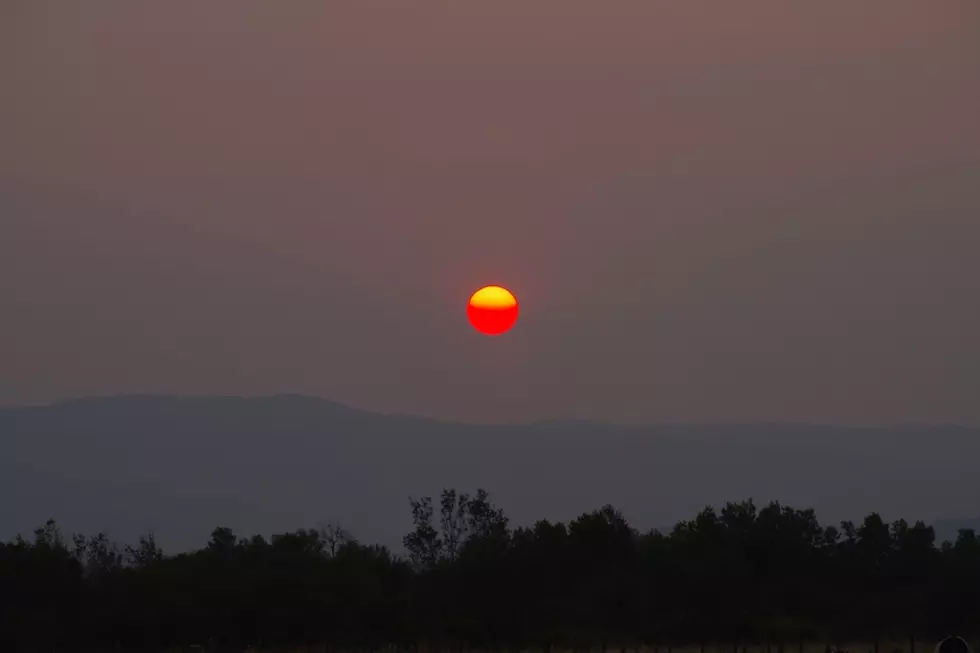
Daines, Feinstein defend forest reform bill; skeptics say tools already there
Citing historic Western wildfires, Sens. Steve Daines and Diane Feinstein on Wednesday urged their colleagues to quickly pass reforms intended to reduce the risk of catastrophic fires, including the harvesting of dead and dying trees and more controlled burns.
While opponents of the measure agreed that more needed to be done to control wildfires, they said Congress has given the Forest Service the tools and funding it needs to improve forest health, only to see the Trump administration slash the agency's budget.
The Emergency Wildfire and Public Safety Act, introduced by Daines and Feinstein last month, received its initial hearing in the Senate Subcommittee on Public Lands, Forests and Mining. It was one of several public lands measures heard on Wednesday afternoon, though it received the bulk of the attention.
“The severity and intensity of the wildfires we're seeing can be attributed to multiple factors, including both a decline in forest management and warming temperatures,” Daines said. “While we can debate the extent to which different factors contribute to wildfire activity, we can all agree on the need for a bold, broad, bipartisan solution.”
The measure includes what Daines described as 53 pages of solutions, including the creation of fire breaks along established roads and trails. It recommends burying transmission lines in area's susceptible to fire, and it would make funding available to help fireproof homes built in the forest.
It would also direct the Forest Service to conduct logging and carry out prescribed burns on a wider scale. Some projects would receive a categorical exclusion, leaving critics to contend that it would reduce public input and scientific review.
Daines said that wasn't true.
“Some have said this legislation undermines environmental law and skirts judicial review. That couldn't be further from the truth,” he said. “This bill uses time-tested approaches to expedite and streamline critical projects without circumventing public input or environmental review.”
Sen. James Risch, R-Idaho, spoke in favor of the measure on Wednesday, as did Feinstein, a California Democrat who joined Daines in crafting the legislation.
Feinstein agreed with Daines that forest reform was needed to curb fire activity.
“Let me blunt, California is on fire and smoke is blanketing the entire Western part of the United States,” said said. “We have to change our approach in dealing with wildfire and how we manage our forests. We can't just sit here and do nothing.”
So far this summer, Feinstein said five of California's largest fires have already occurred, even though the traditional start to the fire season has only just begun. More than 25 major fires have burned 2.8 million acres in California, killing 25 people.
In Oregon, 350,000 acres have burned, displacing more than 10% of that state's population, according to Feinstein. Washington has seen 300,000 acres burn, Colorado 100,000 acres and Montana 150,000 acres, though much of that has occurred on private land and grasslands to the east.
“We have to address the dead and dying trees in our forests that provide fuel for these disasters,” Feinstein said. “There are more than 150 million dead trees in California's forests, the result of drought and bark beetle populations that thrive in warmer temperatures.”
Feinstein said the bill would create a $100 million grant program and provide incentives to help make harvesting dead trees more commercially viable. It would also offer incentives to businesses willing to “step in and reduce the fuel load in our forests.”
The measure would also increase the use of fire breaks and prescribed burns.
“Our bill would allow expedited and environmental reviews regarding the installation of fire breaks near existing roads, trails, transmission lines and pipelines,” Feinstein said. “The bill also requires the Forest Service to consult with the Fish and Wildlife Service when new peer review research shows a project could harm threatened or endangered species.”
The measure would also establish a new prescribed fire center to coordinate research and train forest managers on best practices.
“Yes, climate change is making these fires worse by the year, and we've got to address it,” Feinstein concluded. “But our bill takes aim at the direct, most immediate causes of this unprecedented series of wildfires.”
Sen. Debbie Stabenow, D-Michigan, questioned the bill's necessity, saying forestry experts have “time and time again” pointed to the climate crisis and lack of resources as the drivers of today's large wildfires.
She said Congress passed a Forest Service budget fix in 2018 to free up funding for “the science based restoration” of the nation's Western forests.
“We freed up over half-a-billion dollars we thought was going to go back into funding prescribed burns, which are possible now if the resources are there,” she said. “But instead of the savings we used to decrease wildfire risk, the Trump administration cut the Forest Service budget in every single submission they've made to Congress.”
Stabenow said Congress has already granted the Forest Service more than 30 categorical exclusions through the National Environmental Policy Act, including three new exclusions granted in the last six years stemming from the 2014 Farm Bill, the 2018 Omnibus Bill and the 2018 Farm Bill.
She added that in the 2018 Farm Bill, Congress doubled the funding for the Collaborative Forest Landscape Restoration Program.
“On the Forest Service's own website, it said this has been an effective tool for improving forest conditions, and yet the administration has proposed to zero out the program in every single one of its budgets,” Stabenow said. “I'm truly concerned and don't understand why the administration is not implementing the new restoration tools we've already given them.”
